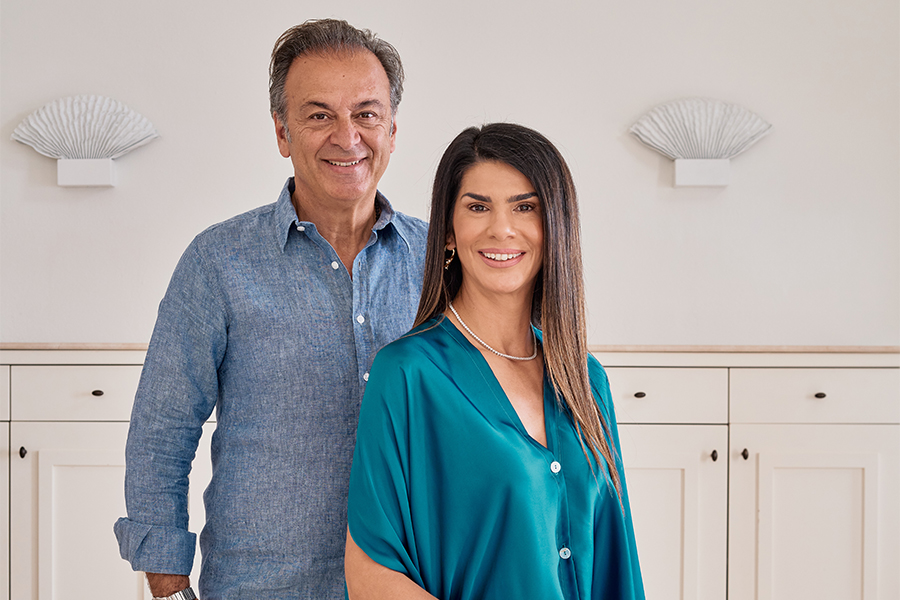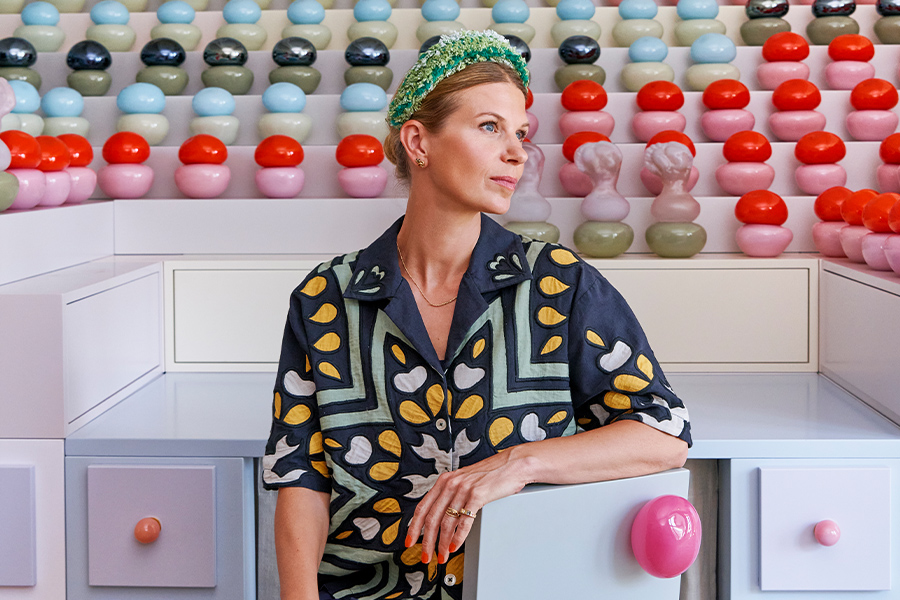Leong Teng Wui knows a thing or two about hospitality design and development. For almost 20 years, the Harvard University and National University of Singapore grad has developed hotels, serviced apartments, and mixed-use properties throughout Asia and the world for the likes of Ong & Ong and Millennium & Copthorne International, all after he started his career heading up design for the Urban Redevelopment Authority of Singapore.
Five years ago, he joined Ascott Limited, a leading international serviced residence owner-operator, as chief development officer, overseeing a team of design professionals to look after and develop the company’s more than 200 properties in 70 cities worldwide. He’s also helping to spearhead Ascott’s newest brand Lyf (pronounced life), which hopes to attract Millennials looking for longer stays by blending coliving and coworking with a bit of whimsy. “I have seen the serviced residence industry becoming more diverse in terms of real estate typology, product design, and service offerings in cities across the world,” he says, pointing to the changing needs of business travelers, demographic profiles of his customers, as well as air travel and technology.
With a target goal of opening 10,000 Lyf units by 2020, and after opening the company’s first living lab in partnership with the Singapore Management University to test the pillars of the brand, Leong chats about putting Millennials in charge, building a community, and finding the kid in all of us.
What did you want to create with Lyf that didn’t already exist in the market?
Millennials currently form a quarter of Ascott’s customers, and this segment is poised to grow exponentially. Individuals in their 20s and 30s will account for more than half of the workforce by 2020, with all Millennial travelers expected to spend more than $200 billion annually. We set out to create a new serviced residence brand that would appeal to Millennials and the Millennial-minded, given the great growth potential we see in this market segment.
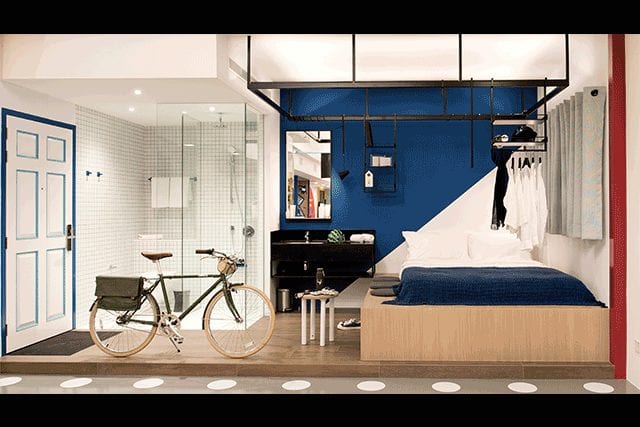
Along with pops of blue and glass-enclosed showers, Lyf’s guestrooms trade in closets for rails that suspend from the ceiling.
The launch of Lyf is another milestone in Ascott’s innovation journey to design products and experiences for the future of travel. We are the first serviced residence company to partner with new economy leaders like Tujia (China’s largest online apartment sharing platform equivalent to Airbnb) and Alitrip (Alibaba’s travel platform, now known as Fliggy).
What is the Lyf philosophy?
Just as every customer is unique, our units should also be customizable to suit individual needs and preferences. The product and design team studied similar offerings in markets such as Germany and the United Kingdom, where coliving concepts are more mature. We were mindful that the product is designed to cater to the needs of longer-stay travelers and ensured that the apartments are cleverly configured and comfortable enough to suit the different lifestyles of our customers.
Early in 2016, we embarked on a brand study and conducted focus group discussions to test various concepts, such as shared bathroom facilities, communal lounges, and social spaces. We also surveyed our key corporate customers to find out if this was an accommodation concept they would choose. Lyf was developed and designed with these insights in mind.
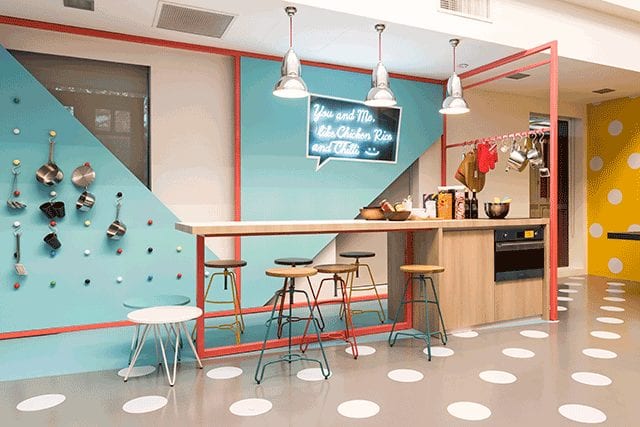
The brand’s Bond social kitchen allows guests to eat and cook together or take classes about local cuisine.
What sort of guest culture did you have in mind when designing the space?
The properties will have plenty of communal spaces designed to encourage networking and interaction between guests. Coworking areas can be easily transformed into zones for workshops or social gatherings. Residents can also hang out at the Wash & Hang laundromat and play a round of foosball while waiting for their laundry to be done. The Bond social kitchen is where guests can prepare home-cooked meals, take cooking classes, and socialize while learning more about global cuisines from other residents.
Project groups can also choose to stay in the All Together units (business suites), which have smart display screens for video conferencing and discussions while a large table doubles as a collaborative working zone and dining area. Instead of standard wardrobes, guests can hang their clothes on rails that suspend from the ceiling or put up a hammock for a lazy afternoon snooze.
How do these coliving and coworking spaces encourage interaction?
The Connect communal spaces and coworking areas can be easily transformed into zones for workshops or social gatherings. We also understand that our guests may need some private space at times, so we have incorporated elements such as private phone booths and meeting rooms in our coworking spaces, quiet corners in the lobby, and reading nooks in the laundromat. We have catered for flexibility in the use of space so furniture can be easily shifted around to accommodate different types and sizes of events and discussions, which can be organized by both Lyf guards and guests. Some of these activities will be free of charge, while others, like a makers’ workshop with local craftsmen, may have a minimal fee for materials. Residents may even get access to exclusive invites for local music festivals and concerts. The programs at Lyf will be focused on technology, innovation, trends, and interaction.
Tell us about the Lyf guards.
The guards are Millennials who may be residents themselves, community managers, city and food guides, barkeepers, and problem solvers all rolled into one. They are young, outgoing, energetic, and always full of fun ideas that can bring the community together.Lyf guards can conduct workshops with local craftsmen, [or put together] hackathons with local startup accelerators or innovation talks. Just like lifeguards, they will take care of your wellbeing and come to your rescue in times of need.
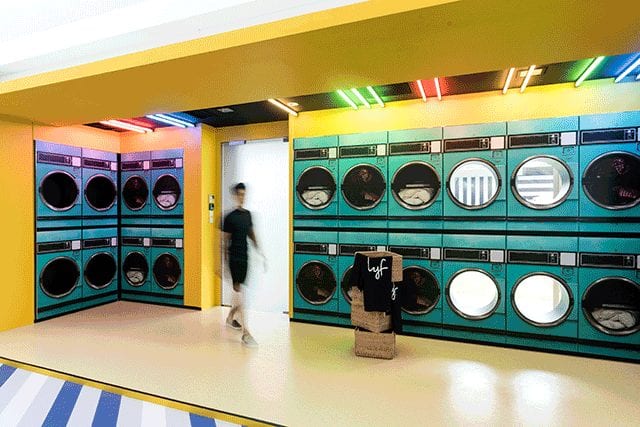
The flexible Connect communal spaces and coworking lounges can be transformed into zones for workshops or social gatherings.
How would you describe Lyf’s design?
Each property will have its own personality and incorporate fun, quirky design elements in communal spaces. There may be interactive digital art pieces or even giant ball pits, hamster wheels, and oversized Connect Four sets for the kid [in all of us].
Our focus for Lyf is on creating an authentic local travel experiences for our guests. For our Lyf show suite at the Ascott Centre for Excellence in Singapore, we worked with a Singapore agency, Farm, to develop the experiential and interior design. In line with one of Lyf’s brand values—authenticity—we think global and act local. We support local designers and our Lyf properties will also use furniture by local designers or artwork by local artists.


